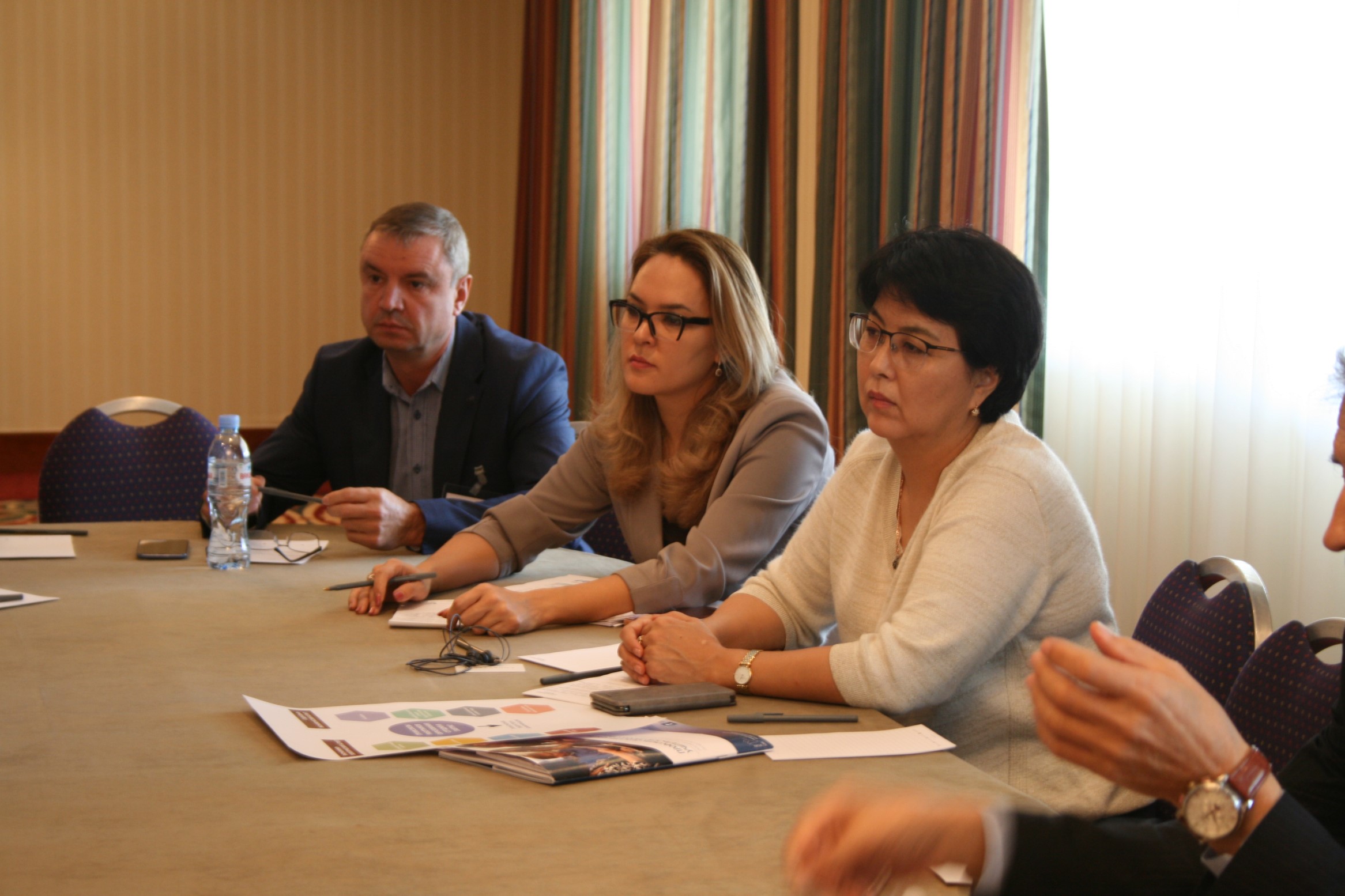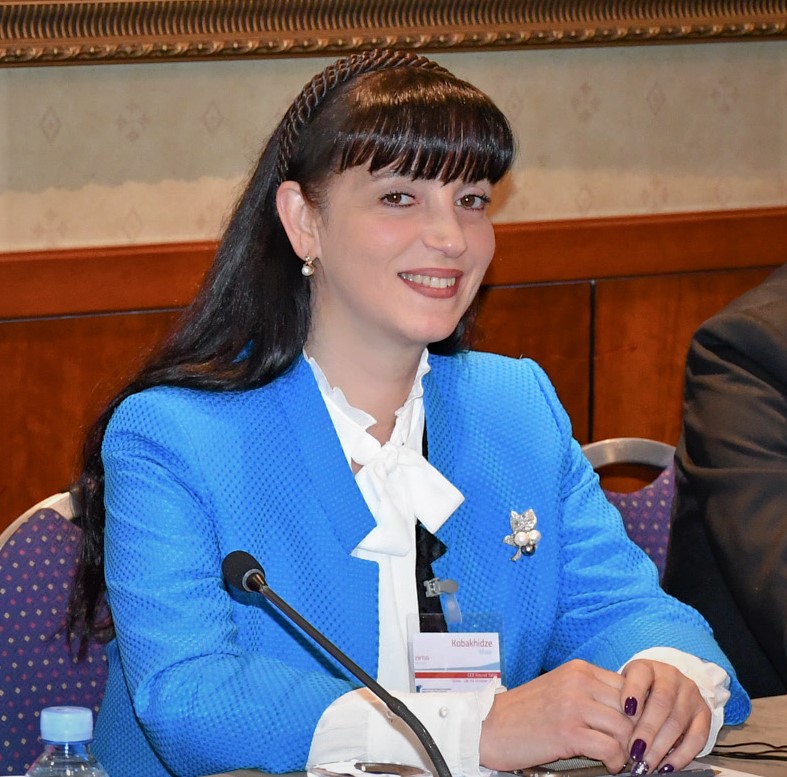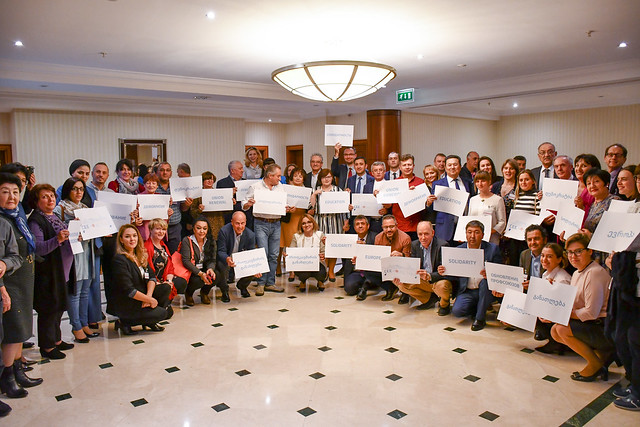CEE Roundtable sets an agenda for strength in Central and Eastern Europe
Published:
Education trade unions from across Central and Eastern Europe have issued a bold pledge to stand together in their efforts to shape European and international policy. This year’s CEE Roundtable was hosted by our Georgian member organisation EFSTUG, welcoming 70 union activists alongside ministers and EU representatives. We developed plans and practices for international union solidarity, trade union renewal and the role of education trade unions in education policy making.
The CEE Roundtable meets every two years, bringing together ETUCE member organisations from across Central and Eastern Europe (CEE). This year’s event focused on trade union renewal, mutual solidarity and the ways that education trade unions can increase their influence on European and international policy. For every topic we discussed ongoing ETUCE work and enjoyed presentations from colleagues about the activities of their unions at national level.
External contributors included Cesare Onestini, Director of the European Training Foundation and Catalin Gherman from the EU Delegation in Georgia. Georgia’s Education Minister, Mikheil Batiashveli, also addressed the participants on the changing world of education in Georgia.
Susan Flocken, ETUCE Director, welcomed the conclusions of the CEE Roundtable. “Our members in Central and Eastern Europe have created some wonderfully ambitious proposals, which cover everything from communications to lobbying the UN. ETUCE and its members are building their strength as a key voice in education policy. Let’s look to the future!”
We owe a special debt of gratitude to our host union, EFSTUG, who provided wonderful support in the organisation of the conference. We spoke to EFSTUG’s President Maia Kobakhidze to get her reflections.
 “Holding the Roundtable in Georgia will have a significant impact in raising the authority of trade union work in our country. This event encourages not only ESFTUG members but the whole the teaching community of Georgia to feel that they are a full-fledged part of Europe and taking part in shaping the future of Europe. Discussing the challenges in European education systems at the Roundtable and comparing them to the problems in the education system of our country makes it explicit how urgent the need for reforms in our education system is. This increases the trust among the teaching community for these reform needs.”
“Holding the Roundtable in Georgia will have a significant impact in raising the authority of trade union work in our country. This event encourages not only ESFTUG members but the whole the teaching community of Georgia to feel that they are a full-fledged part of Europe and taking part in shaping the future of Europe. Discussing the challenges in European education systems at the Roundtable and comparing them to the problems in the education system of our country makes it explicit how urgent the need for reforms in our education system is. This increases the trust among the teaching community for these reform needs.”
